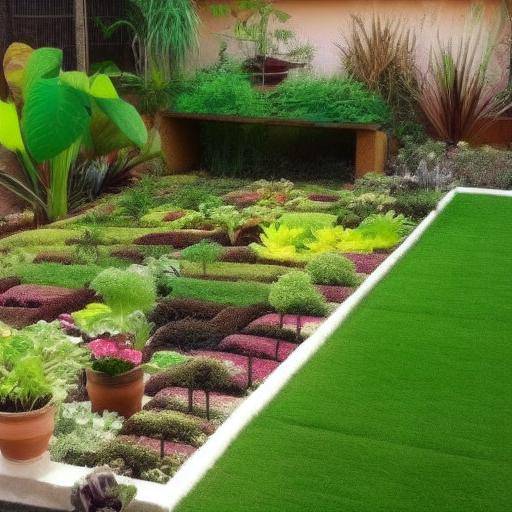
Gardening goes beyond simply cultivating plants; it can be a powerful therapeutic tool that positively impacts our mental and emotional health, providing a satisfactory and beneficial experience. In this article, we will explore in detail the benefits, history, practical applications, future trends and useful tips on gardening as personal well-being therapy.
Introduction
The practice of gardening has been a connection with nature for centuries, but its potential for emotional and mental well-being has gained greater recognition today. In this introductory section, we will examine the impact of gardening on personal well-being, present revealing statistics and provide an overview of what readers will find in the rest of the article.
Impact of gardening on personal well-being
Recent studies have shown that gardening can reduce stress, improve mood and increase the overall feeling of well-being. Spending time outdoors, in contact with nature, has a calming and revitalizing effect. According to a survey conducted by the National Horticulture Society, 80% of gardeners report an improvement in their mental health after spending time in their gardens.
History and Background
Gardening as therapy has historical roots that go back to ancient civilizations. From the healing gardens in ancient Persia to the medieval therapeutic gardens in Europe, the relationship between gardening and well-being has been recognized throughout history. We will explore significant events, key figures and relevant advances that have shaped the evolution of therapeutic gardening, highlighting their benefits and applications in various cultures over time.
Healing gardens in ancient Persia
In ancient Persia, the gardens were considered sacred spaces where people could find peace and rejuvenation. These gardens were not only places of aesthetic beauty, but also spaces designed for meditation and emotional recovery.
Medieval therapeutic gardens
In medieval Europe, monasteries often included gardens designed for healing. These gardens contained medicinal herbs and provided a peaceful environment for spiritual reflection and healing.
Detailed Analysis
We will discuss in detail the multiple benefits of gardening for personal well-being, including its impact on stress reduction, mood improvement and the promotion of mental health. We will highlight specific studies and examples that scientifically support these assertions, as well as exploring the potential challenges that gardening practice as therapy can face in modern society.
Stress reduction
Gardening has proven to be an effective activity to reduce cortisol levels, stress hormone. A study conducted by Wageningen University in the Netherlands found that people who practiced gardening after a stressful task experienced a significant decrease in their cortisol levels compared to those who performed other relaxing activities.
Improved mood
The act of taking care of plants and seeing them grow can provide a sense of achievement and satisfaction. Exposure to sunlight and fresh air also plays an important role in improving mood. Gardening can increase production of serotonin, a key hormone for emotional well-being.
Comprehensive review
We will analyze the practical applications of gardening as therapy, providing case studies and good practices that demonstrate their effectiveness in therapeutic and community environments. We will compare future trends and provide practical advice for those who wish to use gardening as a tool to improve their personal well-being.
Applications in therapeutic environments
Gardening has been integrated into various occupational therapy and rehabilitation programmes. In hospitals and long-term care centers, the therapeutic gardens offer patients a space for relaxation and recovery. A study by the University of Rochester Medical Center showed that patients who participated in gardening activities experienced faster recovery and a reduction in the use of analgesics.
Good practices and case studies
Examples of successful programs include community initiatives where gardening is used to promote social cohesion and improve the mental health of participants. In Detroit, the "Urban Roots" program has transformed wastelands into community gardens, providing residents with a sense of purpose and a way to contribute positively to their environment.
Future trends
The popularity of gardening as therapy continues to grow, and future trends include the use of technology to improve the accessibility and impact of therapeutic gardening. Mobile applications and online platforms are being developed to guide users in the creation and maintenance of their gardens, offering virtual support and community.
Practical advice
For those interested in starting with gardening as a way to improve their personal well-being, it is important to start simply. Select plants that are easy to care for and create a garden space that is comfortable and accessible are key steps. In addition, spending time regularly on gardening can help establish a healthy routine and provide long-term benefits.
Gardening, more than just recreational activity, is a valuable tool for emotional and mental well-being. With a rich history and a proven impact on health, this practice offers countless benefits for those seeking to improve their quality of life. Whether through a small orchard at home or participating in a community project, gardening can transform not only the physical spaces, but also the health and well-being of people.


